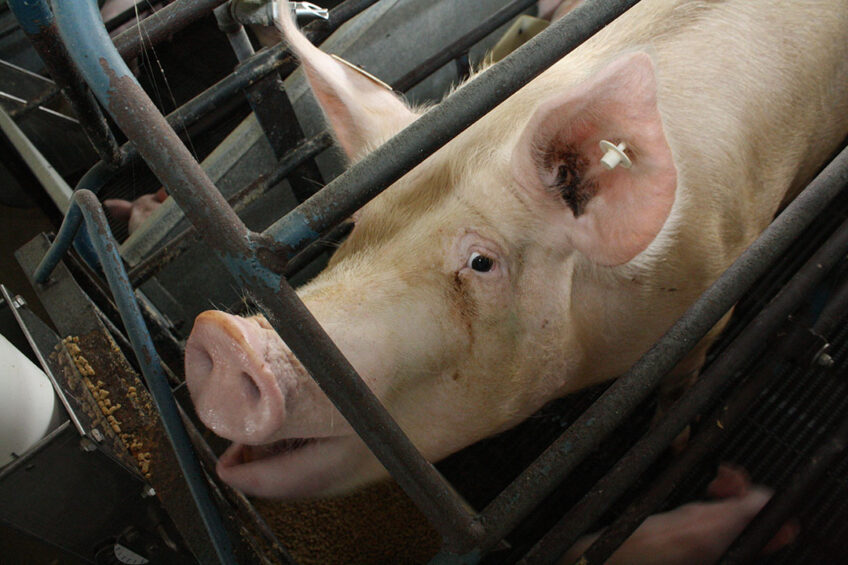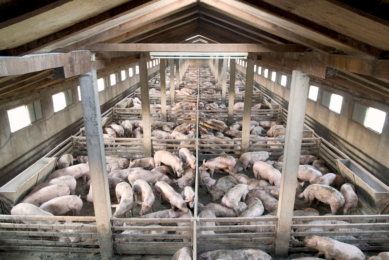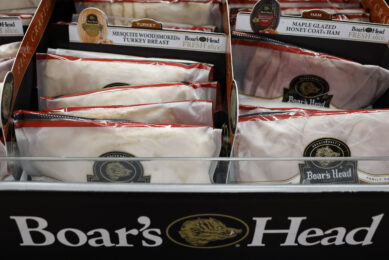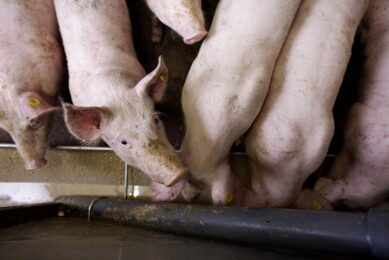US pig industry watches California’s Prop 12 rule

The implementation of new animal welfare regulations for sows and more in California is expected to affect livestock production across the US. Here are updates on the housing standards, lawsuits and implementation timeline.
In late 2018, voters in California approved Proposition 12, which is known as the Farm Animal Confinement Initiative. It was an act intended to change the US pork industry, whether each individual voter realised this or not.
Sow housing and freedom of movement
As explained in a California Department of Food & Agriculture release, the new law requires that animals held in buildings, including veal calves, laying hens and breeding sows, “be housed in confinement systems that comply with specific standards for freedom of movement, cage-free design and minimum floor space.”
“In addition to general requirements that prohibit animals from being confined in a manner that prevents lying down, standing up, fully extending limbs or turning around freely, the measure added detailed confinement space standards.” Each breeding sow must have 24 ft2 of space (2.2 m2).
Reach beyond the state of California
Prop 12 also prohibits any business from knowingly engaging in the sale within the state of shell eggs, liquid eggs, whole pork meat or whole veal meat, as defined, from animals housed in a “cruel manner,” contrary to the housing standards outlined. From the start, the legislation was therefore recognised by the US pork industry as having the potential to change the entire sector.
That is, as Prop 12 is implemented in California, which represents about 15% of the US pork market, farmers in states from Michigan to Texas who supply pork to be sold in California must comply with the same rules that apply to their counterparts in California.

Read also: The return of WPX: Optimism abounds
Consequences felt by hog farmers across the country
“As California has no significant commercial pork production, the burden of complying with Prop 12 – and its harmful ramifications – will be felt by hog farmers across the country,” explained Rachel Gantz, spokesperson for the National Pork Producers Council (NPPC).
“Meantime, Prop 12 will dramatically reduce the supply of pork to Californians, driving up prices for consumers and removing an affordable source of protein for millions of hard-working families in the state. NPPC and its members strongly object to Prop 12.”
In addition to costly barn changes, the NPPC believes this legislation, if finalised, “would create a burdensome, bureaucratic labyrinth of regulatory provisions, requiring a virtually unworkable annual certification of hog farms and creating an overly complex accreditation process for entities allowed to certify those farms and the pork production chain.”
It would also impose, said Gantz, overly burdensome and unnecessary recordkeeping requirements on farmers and others throughout the pork supply chain, impose unnecessary and problematic labeling provisions, “and grant legally questionable enforcement authority that exceeds the scope and authority of Prop 12.”
First challenge by NA Meat Institute
The North American Meat Institute has challenged Prop 12, stating that over half of US state governments (over 15 of the total 50) find it intolerable that one state would be allowed to apply its laws to what occurs in other states. The institute also noted that Prop 12 threatened the free flow of interstate commerce.
The institute had asked the US Supreme Court to review the legislation, but the Court declined to do so at the end of June.
Pork producers in limbo
It was originally expected that pork producers would have over 2 years after the regulations were implemented to comply. However, Gantz reported that in May, California’s Department of Food and Agriculture issued proposed rules for how it would implement Prop 12, which goes into effect on January 1, 2022. “Keep in mind that the state was supposed to have finalised those rules by September 2019,” she said.
The comment period about the proposed implementation rules ended on July 12. The NPPC submission can be found here.
A recent RaboResearch report, “US Pork Supply Chain Locked in Limbo as Producers Await Legal Ruling,” finds that less than 4% of the sow housing across the US currently meets Prop 12 standards.
NPPC launched a separate lawsuit
The NPPC, in collaboration with the American Farm Bureau Federation, has launched a separate lawsuit against California over Prop 12. It is currently being reviewed by the US Ninth Circuit Court of Appeals. Gantz said, “oral arguments in our case were made in April and we expect a decision sometime soon.”












